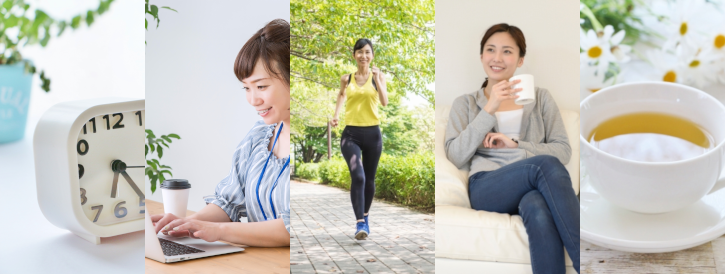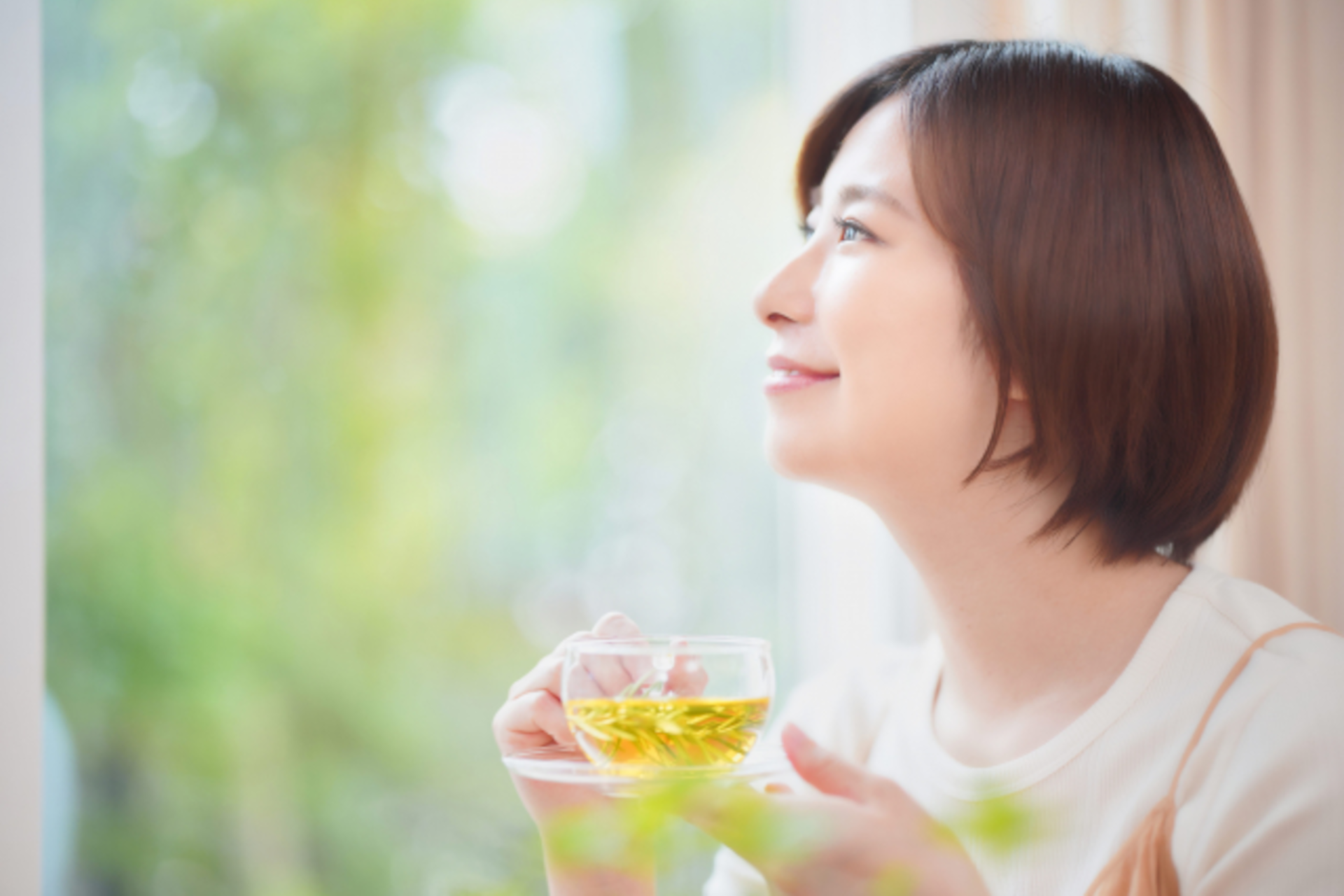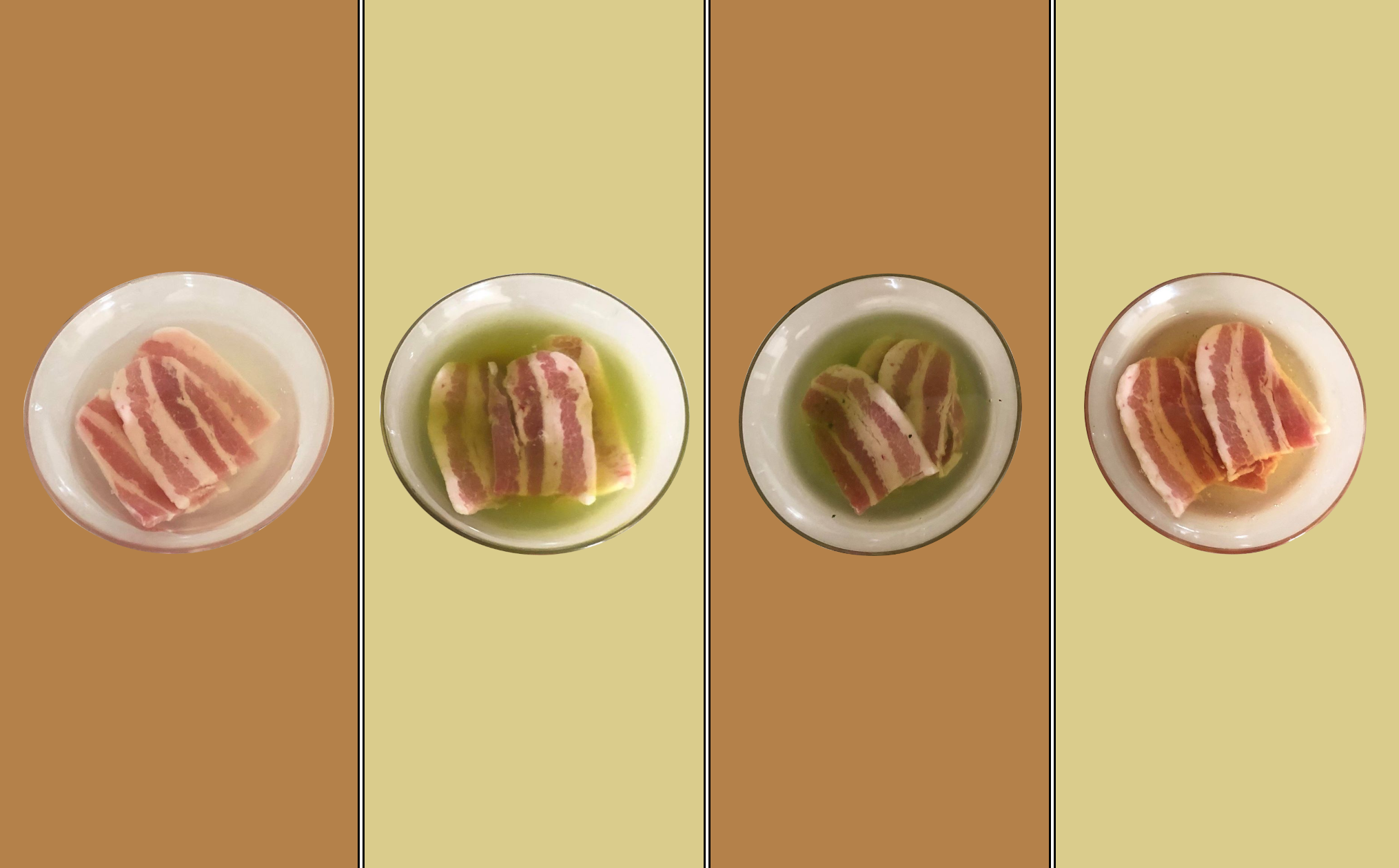
What Tea is Best to Drink When?
Incorporate tea into your daily routine!
Choose the best teas to fit into your daily life and maintain your energy throughout the day.
Morning teas

What about a cup of cold brewed Sencha to wake up your brain in the morning and to start your day in a good mood?
Before going to bed, combine tea and cold or room temperature water in a pitcher and let the tea infuse the water overnight to make cold brew Sencha. Drinking it right after you wake up helps rehydrate your body and feel fresh.
High-grade Japanese green teas such as Gyokuro, Sencha and Matcha, are high in caffeine, which helps clear the head. Caffeine is highly soluble in boiling water. Brewing tea in hot water allows for more caffeine to be extracted from the tea leaves. Matcha is made of tea leaves that are ground into powder. So, when you drink Matcha, you end up consuming the entire tea leaf. Both the water-soluble components and the ones that aren’t water-soluble are ingested. Since Matcha has many features, including leaving no tea grounds, it is the perfect drink to enjoy on a busy morning.
The effects of caffeine on the body may begin as early as 30 minutes after ingesting and last up to 4 to 5 hours. If you start your morning with a cup of tea high in caffeine, it will help you concentrate during the day.
Noontime teas

A well deserved rest after a wildly productive morning at work!
Bancha and Hojicha, which are known to have lower levels of caffeine than other Japanese teas and refreshing, are suitable to drink on an empty stomach or after a meal. A cup of Hojicha can help to cleanse the palate in between bites of fried food and other fatty foods.
The fluoride content of tea can greatly help dental health by strengthening the structure of the tooth enamel and preventing tooth decay. Furthermore, the antimicrobial properties of tea related to catechin have inhibitory effects on the bacteria responsible for tooth cavities and prevent bad breath.
Low grade green teas contain higher amounts of fluoride than higher grade green teas. So Bancha and Hojicha are wonderful teas to drink after a meal.
Click to see our noontime teas
Afternoon teas

It's common to feel tired after eating a meal. We recommend that you brew a cup of Sencha using boiling water to ease post-lunch drowsiness.
Tea catechins also inhibit glucose absorption by suppressing the enzyme that breaks down sugar into glucose. In other words, they reduce body fat gain linked to excess sugar consumption and are effective against obesity.
The antioxidant properties of catechins prevent the formation of reactive oxygen species and inhibit lipid peroxidation. Vitamin E and Vitamin C naturally found in tea significantly increased the antioxidant activity of tea polyphenols. Vitamin E is a fat-soluble vitamin and does not dissolve in water. Therefore, vitamin E is best taken through Matcha!
Click to see our afternoon teas
Evening teas

Once the housework is done and the children have gone to bed, reward yourself with a cup of health tea or herbal tea and relax after a long day of hard work.
Genmaicha, a blended Japanese green tea made using Japanese Sencha, Bancha or Kukicha and roasted brown rice kernels, is ideal for relaxing.
The choice of tea can vary depending on your mood, your health, and your personal taste.
Take a break from the busy everyday life and have a cup of tea while enjoying a soothing and relaxing atmosphere. This will give you a sense of calm and help you fall asleep.
Calming teas

Treat yourself to a cup of Gyokuro or Kabusecha when you want to relax at home while reading a book or watching television.
Compared with Sencha, Gyokuro and Kabusecha are much richer in umami due to their high levels of theanine. They stimulate the central nervous system and help relax both your mind and body. Furthermore, theanine smooths out the stimulating action of caffeine.
Since the solubility of caffeine increases significantly with temperature, brewing tea at lower water temperatures (below 50°C) or using cold water will release less caffeine than your usual cup of tea. Aside from caffeine, it will release less catechins and tannins into the brew, which makes the tea less bitter. It will also produce a cup with more L-theanine.
Sports teas

High caffeine teas are not recommended during workout. Caffeine is generally recognized as having a mild diuretic effect — meaning that it may cause you to urinate more frequently — and lead to dehydration. On the contrary, low caffeine teas such as Mugicha, Bancha and Hojicha, can be drunk in large amounts.
Mugicha especially has a natural cooling effect that is believed to help regulate the body temperature. So, it is highly recommended for hydration after a hard workout. Also, since a variety of minerals can be lost in sweat, it is also recommended to drink tea high in minerals, such as Rooibos tea. Rooibos tea contains high levels of flavonoid antioxidants and minerals such as calcium, iron, magnesium, manganese and zinc, and can be considered an all-natural sports drink.
Hangover teas

A hangover is a group of unpleasant physical and mental symptoms that can develop after drinking too much alcohol.
High-grade Japanese green teas which are high in caffeine, such as Gyokuro, Sencha and Matcha, are best to recover from a hangover. Caffeine can help reduce the symptoms of hangovers by stimulating the cerebral cortex.
The main cause of a hangover is the effect of ethanol. When you drink alcohol, ethanol is broken down in the liver by an enzyme called alcohol dehydrogenase, which transforms ethanol into a toxic compound called acetaldehyde. Vitamin C has been demonstrated to protect against the toxic effects of acetaldehyde. When combined with caffeine, vitamin C can help ease hangover symptoms!
Also, azuki beans contain abundant saponin and potassium, which act as diuretics, but also aid in eliminating toxins from the body. So, the morning after a night of hard partying, treat yourself to a cup of tea paired with red bean paste to cure your hangover!
Click to see our hangover teas
Hospitality teas

You may be welcoming someone into your home on a variety of occasions. The practice of serving tea to guests has long been regarded as a gesture of hospitality. So, always make sure to serve your guests — even your last-minute guests — a nice tea!
Premium Gyokuro and Sencha are ideal for serving to guests among Japanese green teas.
Since tea is a gesture of hospitality and is a great way to make guests feel welcome, be careful to serve it wholeheartedly.
Click to see our hospitality teas
Cold brew teas

A cup of cold brewed tea is just what you need to beat the summer heat! It can help keep your throat from feeling dry and lower your internal body temperature.
Any Japanese tea can be made as a cold brew. Still, umami-rich Gyokuro and high-grade Sencha, as well as Sencha Matcha and Fukamushicha are by far the best tea types for cold brewing.
Typical steeping times for Sencha Matcha and Fukamushicha are shorter than other Japanese teas because of their finely cut tea leaves, whose constituents are more easily dissolved in water. So, you can have a refreshing cold brew tea within just minutes!
Mugicha is also a great summer drink because it is best enjoyed when cold brewed. It is a caffeine-free tea made from roasted barley grains that has a natural cooling effect that is believed to help regulate the body temperature.
While majority of teas are fit for the cold brew method, it may not work for some herbals. The cold brew method is not recommended for some herbal teas, because it affects the solubility and dissolution of tea compounds and there would have no benefits to consuming those. So, it is recommended to use freshly boiled water that has cooled down to drink these teas cold.
Also, since a variety of minerals can be lost in sweat, it is also recommended to drink tea high in minerals, such as Rooibos tea!
Click to see our cold brew teas
Health tea

In recent years, with rising health awareness and growing interest in the global environment, organic and caffeine-free products are more popular than ever.
Organic farming is an agricultural method that aims to produce food using no agrochemicals such as chemical fertilizers, pesticides or soil amendments for at least three years prior to harvest. It requires lots of time and efforts to grow food in a eco-friendly way and learning to harness the power of nature without any use of agrochemicals. But organic foods tend to taste better than conventional food.
Then, caffeine is a central nervous system stimulant and a diuretic. So, one must be careful not to consume too much of it. Caffeine-free and low-caffeine beverages can be great healthy alternatives to caffeine!
Click to see our caffeine-free and low-caffeine teas


Leave a comment
This site is protected by hCaptcha and the hCaptcha Privacy Policy and Terms of Service apply.